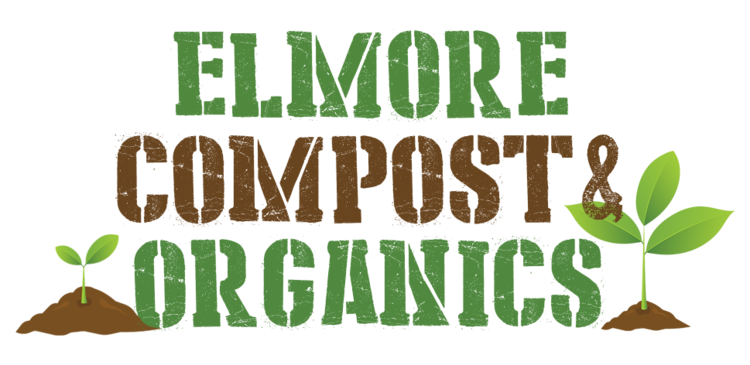The story of Elmore Compost and Organics
Elmore Compost & Organics is a family-run business of 4th generation farmers. Our organic compost enterprise evolved from a happy coincidence when a wet hay season resulted in spoiled hay and straw. A rich soil fertiliser emerged from mixing the hay and straw with manure from our piggery. In time, our clean, green and healthy compost was born.
We are the proud holders of Australian Organic Certification. Our composting process involves recycling green waste from Melbourne and returning it to consumers as a carbon source for urban gardens and pot plants.
We are always looking for ways to develop our product range, with recent moves into the production of organic grains and hay and the launch of our innovative pelletised compost. Our high quality products can cater for all sized projects, from the individual domestic gardener to the large-scale retailer
The benefits of Pelletised Green Organic Compost
Produced by pressing high grade compost through an extrusion process, resulting in a concentrated format. This innovative, convenient & concentrated format is ideal for all types of applications from the home gardener's potted plants to the broad acre farm's air seeder.
Among the benefits of the pelletised format are convenient storage - takes up less space in your shed; fast & easy application - simply sprinkle a few pellets on your lawn, pot plant or around the fruit orchard; slower to release due to its increased density; efficient composting - when applied in the correct quantities; increased resistance to wind - doesn't blow around on a gusty day; cost effective freight and packaging - less bulk; handy weight & size - easier on your back; dust suppressant - healthier for you; less mess - no dirt under your fingernails!
Why choose Wood Vinegar
According to Wood Vinegar Australia, Wood Vinegar, also called Pyroligneous acid or Liquid Smoke, is a dark liquid produced through the natural act of carbonisation, which occurs when a biomass is heated in an airless container during charcoal/biochar production.
The exhaust smoke from this charcoal production is condensed (cooled) into a liquid – this condensate then further separates into Tar, Vinegar and Bio-Oil.
The main benefits include:
1. Improve seed germination strike rate (more seeds sprout when soaked in wood vinegar first)
2. Allows better uptake and a reduction of up to 50% use of fertilisers, herbicides and pesticides
Wood Vinegar is a natural extract from woods. It is used in agriculture and animal fodders. It is a good choice for organic farming. The natural contents make it an attractive alternative to chemical pesticides and fertilizers. Furthermore it is non-toxic and biodegradable and certified organic.
Benefits on crops
+ Stimulates vegetable growth
+ Strengthens roots and leaves
+ Enriches soil fertility
+ Reduce odor
+ Works as flavour enhancer for agricultural end products
+ Inhibits virus and soil disease when mixed in high concentration
+ Increases the quantity of useful microbes
+ Repels insects on plants
+ Prevents diseases caused by bacteria
+ Improves fruit quality and increases sugar content in fruit
+ Nourishes seeds for germination
+ Facilitates composting
Advantages for crops
+ Increase crop resistance to adverse condition
+ Repel pests, prevent plant infection from fungal, bacterial and virus-like disease
+ Improve flavour, colour, firmness and preservation of fruit
+ Strengthen the photosynthesis; Increase the content of chlorophyll of the plants
+ Improve absorption through the roots
Benefits for Plants
+ 50% reduction of fertilisers and pesticides with the use of 1:500 WV water mix.
+ Enhances roots
+ 200:1 for 24hrs soak seeds improves germination
+ Ester darkens leaves to increase photosynthesis
+ Regulates nutrients and microbiological population in soil
+ Better uptake of roots
+ Better tasting and higher sugar contents in fruits
+ Increases resistance to disease
+ Pesticide and anti fungus
+ Speeds up Composting
At 500 times dilution, wood vinegar can reduce the cluster value of water to 1/3. This means that the water is activated and can be easily absorbed by the plants because water with a low cluster value is in a very small mass. Each of these masses will hold one or few mineral elements. These elements can be easily taken into the plants.
The concentration of agro-chemicals or liquid fertilisers can be reduced by 50% if it is diluted in a 500 times dilution solution of wood vinegar due to its higher permeation. This will greatly reduce the use of agro-chemicals. However, it should not be used with alkaline chemicals.
Uses and Application of Wood Vinegar
1) Enriching the soil. Dilute wood vinegar with water ( 1:200 ration-1 part wood vinegar and 200 part water) and sprinkle it to the soil before planting. Application is one litre solution for every square meter of planting area.
2) Applying to compost. Dilute one part wood vinegar with 50 parts water and sprinkle to composting materials. Application rate is 50 litres solution to one compost.
3) Fertilisation. Dilute one part wood vinegar with 200 parts water and spray it to leaves once a month. Dilution ratio can be change to 300 parts water for the succeeding applications.
4) Seed germination. Dilute one part wood vinegar with 200 parts water then soak the seeds for 24 hours.
5) Pest repellent or deodoriser. Dilute one part vinegar with 20 parts water and spray it it the plant or to the substrate in case of odour removal.
For more information visit http://www.woodvinegar.com.au/
